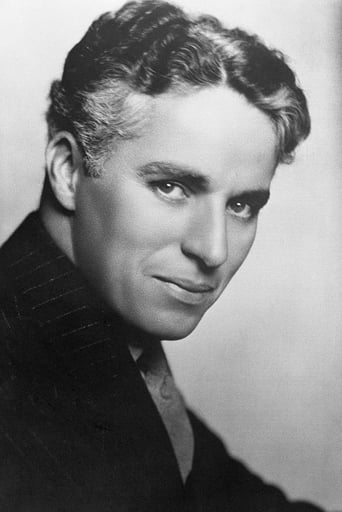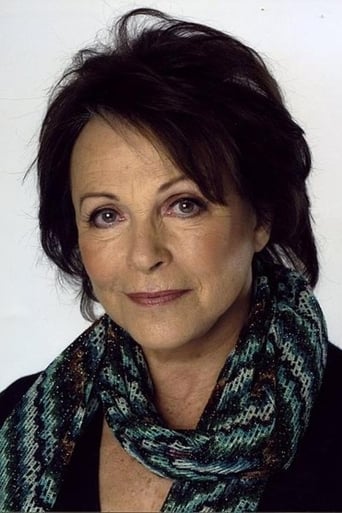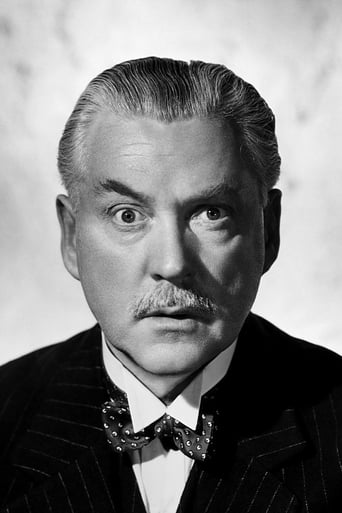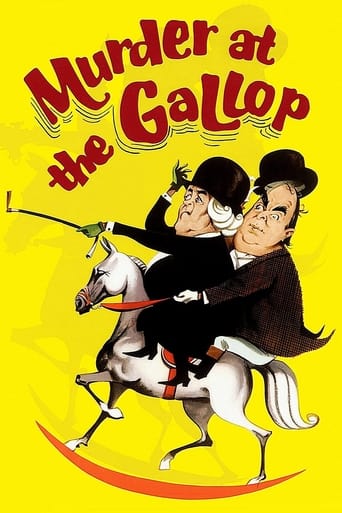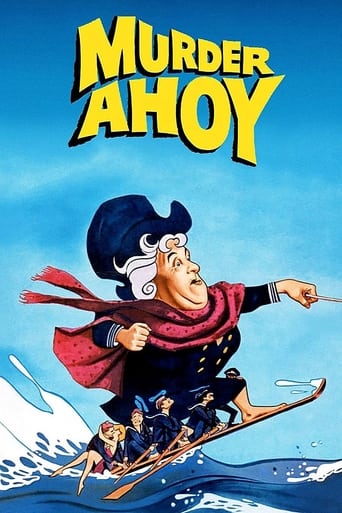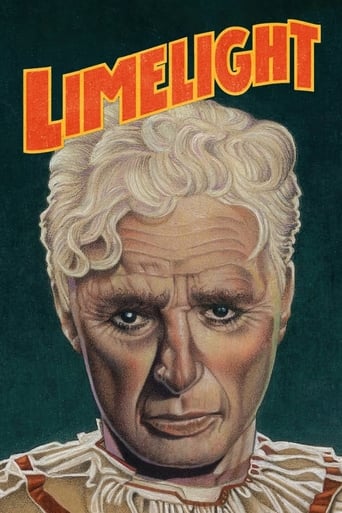
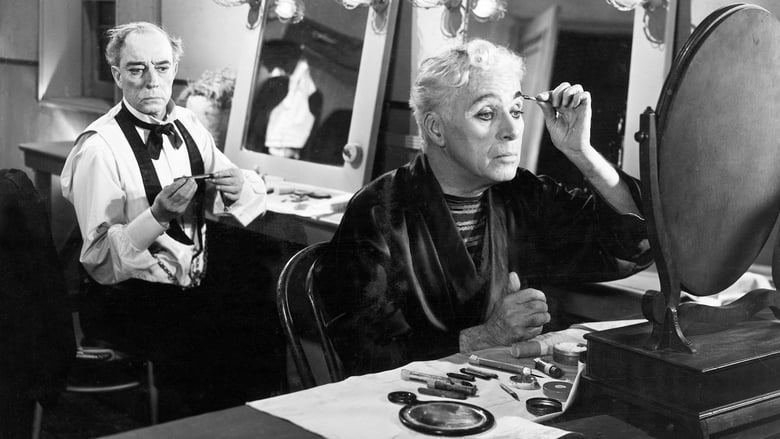
Limelight (1952)
A fading music hall comedian tries to help a despondent ballet dancer learn to walk and to again feel confident about life.
Watch Trailer
Cast
Similar titles

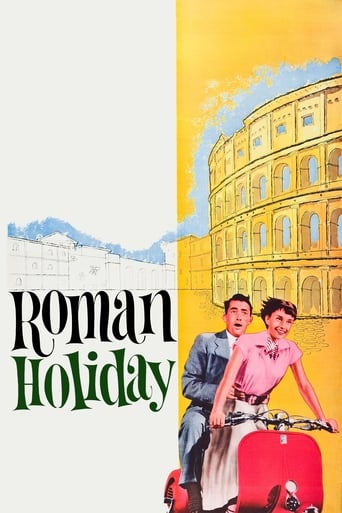
Reviews
I'll tell you why so serious
This story has more twists and turns than a second-rate soap opera.
The storyline feels a little thin and moth-eaten in parts but this sequel is plenty of fun.
The movie's neither hopeful in contrived ways, nor hopeless in different contrived ways. Somehow it manages to be wonderful
I just caught the last scene in this movie today, and found it literally breathtaking. The comedy skit before that, with Chaplin and the pianist, is both funny and disturbing. The violinist becomes demoniacal when he finally plays.But then when he starts to die, on the couch in the prop room, the movie becomes a study in carefully-controlled understatement. I was particularly struck by the moment immediately after he dies, on the bed in the wings, when someone pulls a white sheet up over him. The camera moves in and you expect the man will stop, or at least slow down, when the sheet gets to Chaplin's neck, so the camera can focus on his face. Not at all. The sheet is pulled all the way up, and the clown's body is carried off in the wings without one sentimental second. We are left watching the ballerina dancing, to Chaplin's Oscar-winning tune, followed by her perfectly projected shadows.It's a very impressive scene.Now I have to watch what leads up to it!
This is a brief review of Charlie Chaplin's last six feature films.A comical take on Lang's "Metropolis" (1927), Chaplin's "Modern Times" opens with the words "a story of industry and individual enterprise, humanity crusading in the pursuit of happiness!", an ironic jab at the mantras of industrial capitalism. The film then finds Chaplin reprising his iconic role as "the tamp", a poverty-stricken but lovable outcast whose ill-fitting clothes epitomise, amongst other things, his inability to fit in.The film watches as the tramp struggles to survive in a depressed economy. Like "Metropolis", it satirises labour, management and dehumanising working conditions. Elsewhere life for the worker is seen to be precarious, alternatives to playing the game are but death or prison, giant clocks speak to the daily grid of blue-collar workers, bosses are shown to be obsessed with speed and production, the property class relies on police brutality and all-encompassing surveillance, and the workplace itself is painted as an absurdest torture chamber. The film ends with the tramp on a road, America's future uncertain."Modern Times" made waves when it was released. It was banned in fascist Germany and Italy, then allies of the West, and scorned by those in power in the United States. It was also heavily praised in the Soviet Union and France, particularly by philosophers Jean-Paul Sartre, Simone de Beauvoir and Maurice Merlau-Pony. The film's middle section, which featured Chaplin waving a red flag and unwittingly leading communists and worker unions, would get Chaplin on several government watch-lists.Chaplin followed "Times" with "The Great Dictator". Hollywood studios wanted the film scuttled, so Chaplin financed it himself. It contains two criss-crossing plots, one about a Jewish barber who is essentially persecuted by Nazis, the other about a brutal dictator, a stand in for Adolf Hitler. Funny, scary and sad, the film would rock the US establishment. Hitler was, at the time, a US ally and good for business. What's more, he was viewed by those in power as a tool to destroy communist Russia. For many, Chaplin was a "subverisive" who was "inciting war with an ally". Deemed particularly offencive was a last act speech in which Chaplin urges the people of the world to "love one another", "throw away international barriers" and foster an "international brotherhood". Though deliberately vague, this speech was viewed as inflammatory. Was Chaplin extolling the virtues of the United States or the Soviet Union? Regardless, the US' approach to the conflicts in Europe promptly shifted. It became an ally with Russia, Hitler became the enemy and Germany attacked Russia. In the blink of an eye, "Dictator" went from being sacrilege to prophetic.Chaplin, British, was born into extreme poverty and often found himself sleeping on the streets of London. As such, he identified with his "tramp" character completely, as did millions word-wide, who saw themselves in the tramp: desolate, poor and forever bumbling down life's highways. Prior to shooting "Times", Chaplin would embark on a tour of the world, intent on seeing the effects of poverty. He'd talk to many prominent figures, most notably Churchill, George Bernard Shaw, Einstein and Gandhi.As Chaplin grew in consciousness, so would FBI files on Chaplin. He was put under government surveillance and forced to appear before a Senate subcommittee in 1941 where he was accused of being "anti American" and an "unofficial communist". Many newspapers, including the Times, began a campaign attacking Chaplin, and called for his deportation. In the mid 1940s he was charged with the Mann Act and the FBI would collude with newspapers to smear Chaplin as a sex maniac who "perverted American culture". From here on, conservative political pressure groups would attack each new Chaplin release. Some of his films would be boycotted or outright banned. In 1947 he'd be brought before the HUAC committee.Chaplin followed "Dictator" up with "Monsieur Verdoux". A black comedy, the idea for which came from Orson Welles, the films stars Chaplin as a bank clerk who loses his job and so murders women for cash and land. The film's point is explicit: if war is an extension of diplomacy, then murder is the logical extension of business. And so banking terminology is used to rationalise murder, weapons manufactures are idolised and the poor are condemned for trying to play by the rules of the wealthy. "Numbers sanctify!" Chaplain says, pointing to Hiroshima, Nagasaki and the ruthlessness of post-war capitalism; kill millions and you're a hero.Next came "Limelight", Chaplin's ode to silent film. Elegiac and autobiographical, the film stars Chaplin and the legendary Buster Keaton as two fading comedians. A meditation on time's passing, the film's also relentlessly optimistic; man must assert his will, his desires, no matter how glum the times! The film would be banned from several US theatres. Chaplin himself was swiftly banned from entering the US and several of his assets were seized. He'd live in Switzerland henceforth."A King In New York" followed. It finds Chaplin playing an usurped "dictator" who seeks refuge in America. Also autobiographical, the film pokes fun at various aspects of US culture, its irrational hatred of all things left-wing and the way in which humans are both always branding and refuse to look beyond the political, beyond superficial branding, to tolerate even the slightest bit of difference or dissent. Chaplin's son would play a hilarious anarcho-communist, but the film as whole messily mixed silent gags with sound comedy.Chaplin's "A Countess from Hong Kong" confirms that Chaplin's films were moving from the lower to the upper echelons of society. Here Sophia Loren plays a Russian "tramp" who is taken in by a wealthy politician (Marlon Brando). His worst feature, the film watches as "humane" capitalism benevolently absorbs the "detritus" of Russia and Asia. Chaplin accepted an honorary Oscar in 1972. He received the longest standing ovation in Oscar history.8.5/10
. . . as the American Legion watched some old footage of Hitler's pep rallies, and launched a nationwide boycott of LIMELIGHT. Apparently these legionnaires were not bright enough to realize that Charles Chaplin was SPOOFING Hitler when he made his GREAT DICTATOR flick, and they believed Chaplin WAS Hitler! If it wasn't for the war profiteer types (mostly the father\grandpa of two later U.S. presidents--who said crime doesn't pay?) who made a bundle selling Hitler the diesel fuel additive necessary for the Blitzkrieg to work, there would have been millions fewer legionnaires around in the 1950s, as WWII most likely would not have occurred, and the six million Jews gassed would have thrived to the point of quadrupling today's population level for their group. Charles Chaplin was a lonely voice in a wilderness of war profiteers gunning for battle when he spoofed Hitler before the war. The brave young boys--America's best and brightest--got slaughtered off during the subsequent conflict, and the worst and the dullest who survived became easily manipulated legionnaires goaded by the goons Ike christened the "Military\Industrial Complex" into persecuting the man who could have saved their comrades with his timely warning. But what else could you expect, from the sort of righteous folks who did in Jesus, too!
Throughout most of his early career, Charlie Chaplin reveled in wacky physical humor. As the years went by, his movies started to take on a more serious tone, as he looked at the plight of the working man in a cruel world. By the time that he got to "The Great Dictator", he was openly lampooning tyranny while still showing a lot of funny stuff.But then "Limelight" went to the next step. It contains very little in the way of outright humor. Most of the funny stuff in this movie appears in the scenes where the characters are performing on stage. Mostly the movie is a serious look at how Chaplin's washed-up clown is trying to help a suicidal woman (Claire Bloom) make a career for herself.The obvious tone of the movie is that the old is making way for the new. Indeed, it's the first movie in which the man once known as the Tramp looks truly elderly. But what happened in real life reflected it: the US government wouldn't let Chaplin reenter the country, and most of the country never even saw the movie for twenty years. Things will not be the same for the fictional clown or for the real one.The result is a very good movie. I highly recommend it.

